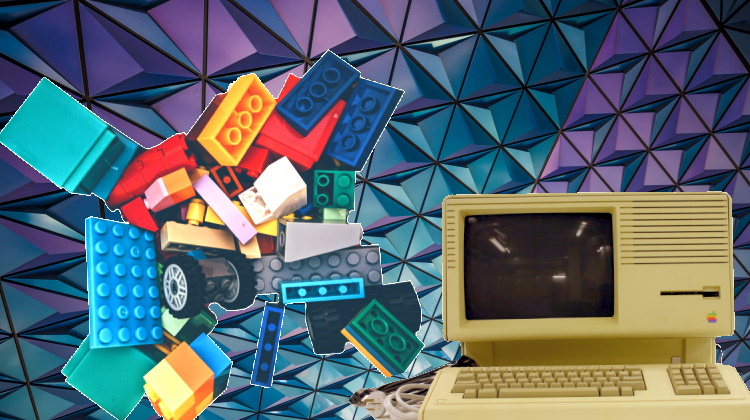
Back in the late 1990s and early 2000s, before notebook computers, tablets, and smartphones dominated the market, most tech-savvy people built their own computers. It was a real pain. First you had to choose a motherboard and case, then all the parts that would connect to them. Sometimes you didn’t have the right connections for your parts. Sometimes your parts were incompatible with your motherboard. Other times, your parts would work, but wouldn’t fit in the case you chose.
What if we could standardize all computers under one standard? And what if we could add and remove computer parts like Lego blocks?
Imagine if you could buy a base computer block with a monitor and keyboard attached to the body (no wires). Changing the monitor is as easy as removing the monitor block and snapping in a new one, similar to how you can plug any USB device into your computer right now. Similarly, you can change the processor speed simply by removing the processor block and plugging in a new processor block. There would also be blocks for your power supply unit, RAM, hard disk, graphics card, etc. There’s no need to open up your computer and unscrew things, or to check compatibility. If the block fits, it will work.
Standardizing all computer components into one modular design would require cooperation between several major computer manufacturers. There would also be tradeoffs between flexibility and speed, since separating components necessarily increases the distance between components. There would also be a tradeoff between customizability and simplicity, because the more components you can customize, the more complicated the system becomes.
Several companies have worked on creating modular mobile phones. Modu created the world’s first modular cellphone in 2007. When Modu went out of business in 2011, Google acquired its patents. In 2013, Phonebloks released their modular phone concept and Motorola began Project Ara. Google took control of both projects and produced working prototypes before finally shelving the project in 2016. The Phonebloks website notes a few newer modular phone projects that may still be active: Shift Phone, Puzzlephone, LG’s Modular phone, and Fairphone.
Leave a Reply